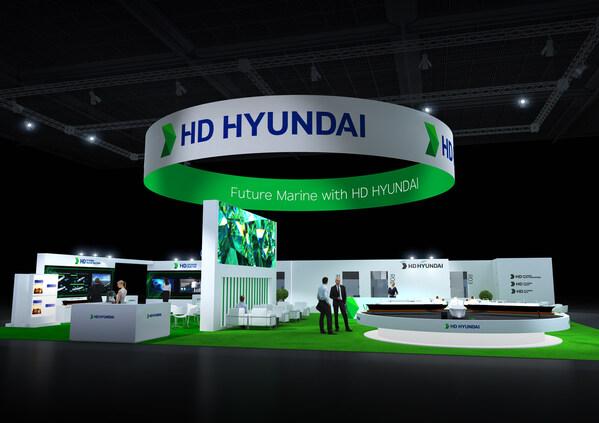 |
- HD Hyundai will participate in Gastech 2024 in Houston, September 17-20
- 16 certification acquisitions and MOU signings expected, highlighting the company’s leadership in digital transformation and decarbonization technologies
- “HD Hyundai, a leader in eco-friendly ship technology, is set to shape the future energy ecosystem”
SEOUL, South Korea, Sept. 12, 2024 /PRNewswire/ — HD Hyundai will showcase the future of decarbonization and digital technologies at Gastech, the world’s largest gas exhibition.
HD Hyundai has announced that it will participate in Gastech 2024, taking place in Houston, USA, from September 17 to 20. The event is expected to host around 800 companies worldwide and attract over 50,000 global attendees.
HD Hyundai will be represented by Vice Chairman Chung Kisun, along with senior executives and employees from sales, research and development, and engineering. They plan to showcase eco-friendly technologies to global companies, including shipowners and classification societies, and discuss development strategies for the shipbuilding and maritime industries.
Additionally, the exhibition will feature a comprehensive booth including HD Korea Shipbuilding & Offshore Engineering, HD Hyundai Heavy Industries, HD Hyundai Mipo, HD Hyundai Samho, HD Hyundai Marine Solution, and HD Hyundai Electric. The booth will showcase HD Hyundai’s eco-friendly ship models, including a next-generation LNG carrier, an FSRU, and a liquefied carbon dioxide carrier.
During the event, HD Hyundai will carry out a total of 16 technical certification acquisitions and technical cooperation MOU signings with global classification societies and companies. The company will particularly showcase its advanced technologies in the digital transformation and decarbonization of gas carriers.
HD Hyundai will receive an Approval in Principle (AIP) from DNV, the Norwegian classification society, for its cloud-based digital twin virtual sea trial verification technology for LNG carriers. This technology enables objective vessel verification through virtual sea trials by integrating and connecting digital twin models of key systems—such as the engine, power, and gas systems—of LNG carriers on the cloud.
From the American Bureau of Shipping (ABS), HD Hyundai will receive an AIP for its unmanned engine room design and safety monitoring solution for ammonia-powered ships. This design and solution are expected to enhance crew safety.
Furthermore, HD Hyundai will receive several AIPs for eco-friendly bunkering vessels. The company will obtain an AIP from Lloyd’s Register (LR) for the development of a 23,000m3 ammonia bunkering vessel, and from the Korean Register (KR) for the development of an 18,000 m3 LNG bunkering vessel. HD Hyundai will also sign an MOU with KR for joint development of ammonia fuel supply system.
HD Hyundai Marine Solution will also receive an AIP from DNV for the retrofit of Onboard carbon capture and storage (OCCS) systems for vessels. This certification allows the company to expand its business scope by adding OCCS retrofits to its existing eco-friendly retrofit projects.
Moreover, on the first day of the event, September 17, HD Hyundai will host a technical seminar to present trends in gas carriers, the current status of electric propulsion systems, and the roadmap for vessel digitalization to shipowners, classification societies, and other stakeholders. On September 18 and 19, in addition to the previously scheduled client meetings, the ‘HD RECEPTION’ event will be held, providing an opportunity for visiting clients to freely exchange ideas about HD Hyundai’s next-generation eco-friendly ships.
“HD Hyundai possesses leading-edge technology in the decarbonization and digital transformation of vessels,” said an official of HD Hyundai. “We will continue to invest and develop technology to contribute to the creation of a sustainable future energy ecosystem.”
View original content to download multimedia: Read More
